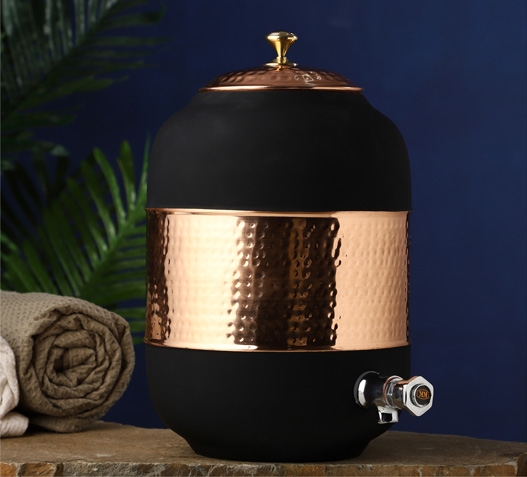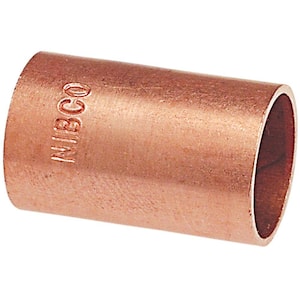How to Choose the Right Copper Products for Your DIY Projects and Home Renovations
How to Choose the Right Copper Products for Your DIY Projects and Home Renovations
Blog Article
Exploring the Diverse Applications of Copper Products in Modern Industries
From enhancing the performance of electric systems to playing an important duty in renewable energy technologies, the adaptability of copper is evident. As markets increasingly prioritize development and sustainability, the varied applications of copper warrant a closer exam, specifically regarding their prospective influence on future environmental techniques and technical developments.
Electrical Applications of Copper
Copper is a necessary product in the electrical market, representing around 60% of the complete need for non-ferrous steels around the world - Copper Products. Its remarkable electric conductivity, which is virtually twice that of aluminum, makes it the preferred option for a wide variety of electrical applications. From electrical wiring systems in household and industrial buildings to high-voltage power transmission lines, copper makes certain effectiveness and dependability in electricity shipment
Along with circuitry, copper is important to the manufacturing of electrical parts such as transformers, generators, and motors. These parts utilize copper's thermal conductivity and malleability, vital for warm dissipation and effective efficiency. Additionally, copper's resistance to corrosion improves the lifespan and sturdiness of electrical systems, making it a cost-effective solution in the long-term.
The development of renewable resource sources, such as solar and wind power, has actually further raised the demand for copper in electric applications. As markets change towards lasting energy options, copper's function ends up being a lot more crucial. On the whole, the convenience and performance features of copper solidify its standing as a keystone product within the electrical market, driving development and effectiveness across numerous applications.
Plumbing and Piping Solutions
In contemporary pipes systems, the choice of products substantially impacts both performance and long life. Copper has become a preferred choice as a result of its unique properties, consisting of rust resistance and antimicrobial features. These attributes guarantee that copper piping stays sturdy and secure for delivering safe and clean water, a vital factor to consider in domestic and industrial applications.
Among the crucial benefits of copper in pipes is its capacity to stand up to high temperature levels and stress, making it ideal for a selection of applications, from warm water systems to home heating and cooling networks. Furthermore, copper's versatility permits much easier setup in complicated piping layouts, reducing the risk of failures and leaks.
An additional noteworthy advantage is copper's lengthy life expectancy, typically going beyond half a century with appropriate upkeep. This long life not just decreases substitute costs however likewise contributes to sustainable practices by lowering waste. Copper's recyclability lines up with modern-day ecological criteria, promoting a circular economic situation within the pipes industry.
Copper in Renewable Resource
The flexibility of copper expands beyond plumbing applications, playing a vital function in the eco-friendly power field. In solar panels, copper is used in solar cells and wiring, assisting in reliable power conversion and transmission.

In addition, as the international need for electric vehicles (EVs) increases, copper's role in battery systems and billing facilities becomes a lot more considerable. The product's ability to conduct electrical power effectively is essential to the performance of EV batteries, boosting range and charging rate.
Copper's Function in Electronic devices
Electronic devices making counts heavily on copper's phenomenal residential or commercial properties, particularly its high electric conductivity and thermal efficiency. These attributes make copper an ideal selection for a variety of digital parts, including connectors, motherboard, and wiring. The steel's ability to successfully send electric signals guarantees very little energy loss, which is critical in high-performance digital devices.
Moreover, copper's thermal conductivity plays a significant function in warmth dissipation, securing sensitive elements from overheating. This is specifically essential in modern-day electronics, where portable designs lead to increased warm generation. Copper is also preferred for its malleability and ductility, enabling it to be easily shaped right into elaborate styles that satisfy the needs of innovative digital applications.
With the rise of customer electronic devices, telecommunications, and electrical automobiles, the need for copper in the electronics continue reading this field continues to expand. As developments in modern technology develop, copper remains integral to accomplishing greater performance and dependability in digital products. Its recyclability further improves its allure, as manufacturers seek sustainable services without endangering quality. Thus, copper stays a cornerstone product in the ever-expanding field of electronics.
Cutting-edge Makes Use Of in Production

One noteworthy application remains in additive manufacturing, where copper-based products are utilized in 3D printing processes. This permits the development of complicated geometries and light-weight elements, especially in the aerospace and automotive fields. Furthermore, copper's thermal conductivity makes it a suitable choice for warm exchangers, improving effectiveness in industrial cooling systems.
Moreover, the increase of clever manufacturing has actually seen the incorporation of copper in IoT tools, where its over at this website conductive capabilities support innovative noticing modern technologies. In the realm of renewable resource, copper is essential in the manufacturing of solar panels and wind generators, helping with extra efficient power conversion and circulation.
As markets make every effort for sustainability and development, copper's convenience and performance continue to place it as an important material, driving innovations in manufacturing and adding to the development of smarter, extra effective items.
Conclusion
The important function of copper in eco-friendly power and its important feature in electronic devices emphasize its relevance in progressing lasting practices. Jointly, these applications illustrate copper's important payment to technical progress and industrial effectiveness in modern culture.
From boosting the performance of electrical systems to playing a critical role in renewable energy technologies, the adaptability of copper is obvious. As sectors significantly focus on technology and sustainability, the varied applications of copper warrant a closer exam, especially regarding their possible impact on future technological improvements and ecological practices.
The development of eco-friendly energy resources, such as solar and wind power, has additionally raised the need for copper in electric applications. Overall, the flexibility and performance attributes of copper strengthen its standing as a cornerstone product within the electrical market, driving advancement and efficiency across different applications.
The flexibility of copper expands beyond plumbing applications, playing an essential duty in the eco-friendly energy sector.
Report this page